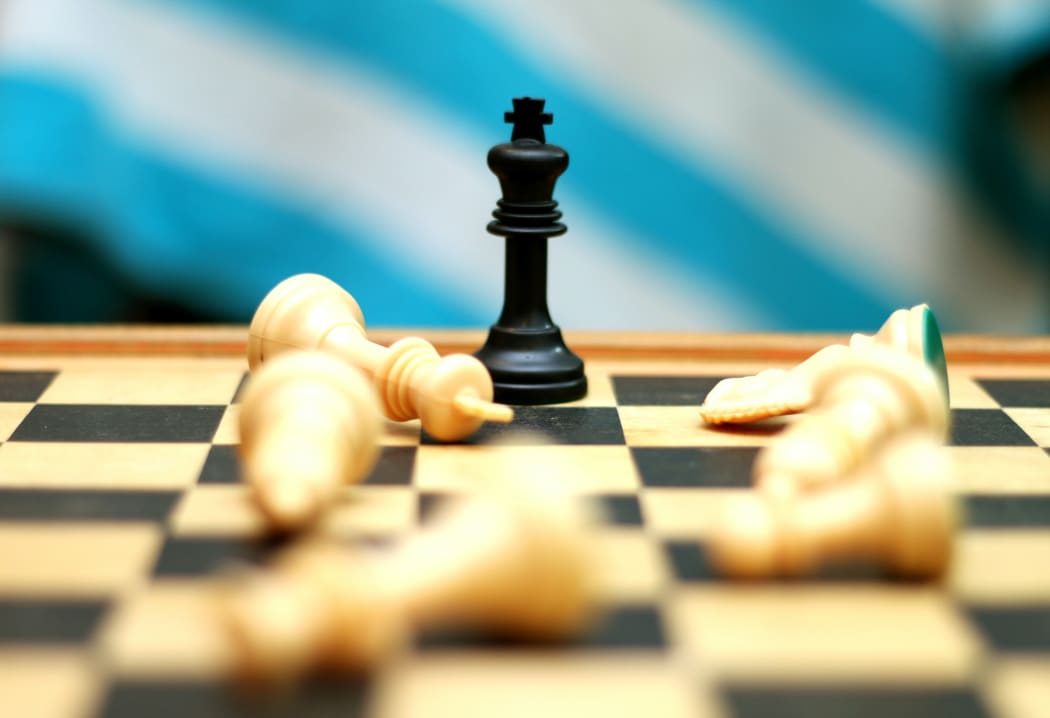Lazy summer days spent playing Scrabble or checkers or backgammon with family and friends is not lazy at all. Games offer us a chance to solve problems, says games enthusiast Oliver Roeder.

Photo: Gladson Xavier/Pexels
Roeder is a former senior writer for FiveThirtyEight with a Harvard PhD in game theory.
He explains to Jesse Mulligan why games are not trivial pursuits but rather something that feeds the soul. It is the subject of his new book Seven Games: A Human History.
“I think they’re a necessity of life in the same way that art is a necessity of life," he says. "I think they activate higher levels of human thinking and engage us in the way art does.
"Whereas something like painting captures the visual world and music captures the heard world, games capture human agency. These ideas of deliberating and deciding and acting. It’s unique, I would argue it is unique among art forms, for that reason."
Our attraction to games explains the success of Netflix’s most popular series Squid Games, he says. Albeit a very violent take the notion of games, he says we are drawn to competition, and maybe we lived vicariously through those forced to compete in the show.
“You also look back to the other Netflix series that was a huge hit The Queen’s Gambit about chess and there does seem to be something in humanity in general, but also about humanity in this amount where we’re really drawn to these pursuits.
“And I can think of a few reasons why that might be the case. I think that the obvious one is the pandemic and the gaming time that it’s provided. But also atrophying muscles, right? We want to act and we want to decide and we want to come together with our fellow man and games are a very convenient and very powerful way to do that.”
Philosopher Bernard Suits in the book The Grasshopper: Games, Life and Utopia, defines the playing of a game as "the voluntary attempt to overcome unnecessary obstacles".
Roeder says we do this because the voluntary pursuit is nourishing.
“Why do we climb mountains or run marathons. They’re not strictly necessary or instrumental, but they feed us in a way that is undeniably important.”
Checkers as a game is underestimated and type cast as a child’s game, he says.
“But checkers is incredibly complicated mathematically. There’s something like 500 billion billion possible positions that could arise on a checkers board and checkers was very important in the history of computer science."
Computers have been programmed to play humans in both checkers and chess, with the activity now having uses extending beyond game playing, he points out.
“There’s this very long tradition and research project getting machines to try to play games better than humans to prove their worth as pieces of artificial intelligence and checkers was sort of the first stop in this journey of artificial intelligence…
“The idea, from the computer scientist’s point of view, is that games are handy little test beds. They’re little slices of the real world that programmers sort of lop off to test their system, with of course the idea being eventually the computer will crawl off the chess board and into the real world.”
This didn’t happen for a long time, until the advent of an AI technique called neural networks.
“This system is sort of designed with the structure of the human brain in mind and these systems seem to be more extendable to domains beyond games," he says.
“One example is a company owned by Google’s Alphabet Inc called DeepMind and they worked on the ancient Chinese game of Go, an incredibly complicated game.
"They conquered it, beating one of the best players in the world in 2016 and now DeepMind has taken many of these techniques used on games and have extended it to, one thing is protein folding, this idea of trying to figure out how three dimensional shapes to which proteins fold, which is an incredibly important project in biology and for drug discovery and development and so on. So increasingly it does seem games, research will hold real promise in the real world.”
The game Go, he says, is the most beautiful featured in his book, played for 5000 years. The beauty is found in its simplicity and it’s the type of game that would take you minutes to learn and a life time to master, he says.

Oliver Roeder Photo: Tony Luong 2019
Backgammon, on the other hand, has a fascinating history, both ancient and modern.
“My backgammon chapter opens with a group of Egyptologists in the earliest 20th century smashing an ancient burial tomb in Egypt finding a game that was almost indistinguishable from modern backgammon.
“It was transferred into the Roman Empire and so on and so on, until it makes its way to the West and the US in the 1970s, popularised by a fascinating character called Prince Alexas Kobylanski, a Russian socialite who lived in New York and Miami. He loved backgammon and he made it his life’s work to popularise this game and he did a wonderful job.
“Backgammon players in the 1970s where a who’s who of pop culture – High Hefner, Pink Floyd, Tina Turner, James Bond, myself. If you were anyone on the 1970s you were playing backgammon. It took the world by storm.”
Scramble is a personal favourite of Roeder because of the variety of goals of the game.
“There’s lots of things you’re trying to do well at the same time. You’re trying to, of course, anagram the letters on your rack to make bingos or useful words, trying to plan ahead for the next move after that. You’re trying to visualise the board, a sense of where you can play and how the board might evolve. And tactics – you’re trying to not only score yourself but to block your opponents’ juicy spot for the queue and there’s just so much going on", he says.
Although he played poker in the world series after getting involved in the great poker boom in America during the 1980s while he was at college, he concurs that there’s a lot of downtime while playing, which can be boring.
“If there’s something that leaves me cold in poker it’s if you’re playing poker well you’re only playing maybe 25 percent of the hands if playing hold-em. There’s just a lot of instant folding that goes on. So especially if you’re playing not on the computer but at the table… You’re just kind of sitting there a lot.”

